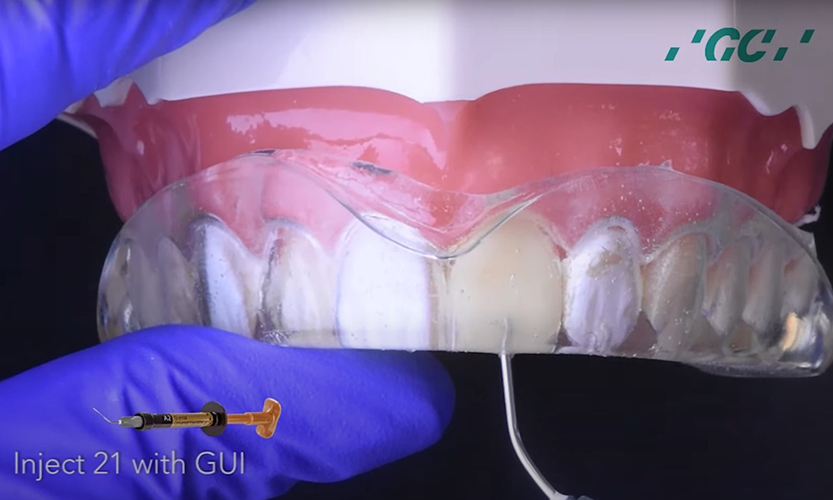Have you experience a certain time wherein you suddenly feel a tingling sensation after drinking a cold lemonade or sipping your hot cup of coffee? This could be a sign of having sensitive teeth. Teeth sensitivity might have been develop for two reasons – receding gum lines or eroding enamel. The tooth enamel and the gums act as outer layers of protection for the dentin – the layer beneath the tooth enamel which is less dense than the enamel or cementum. Dentin contains thousands of tubules that lead down to your root nerves prompting pain reaction when hot or cold food and drink touches the dentin. A visit to the dentist will help determine the cause of tooth sensitivity and recommend appropriate self-treatment procedures.
- Use a special brush and toothpaste. There are toothpastes specially formulated for sensitive teeth. Potassium nitrate or strontium chloride plug up the tubules in the dentin to contain the pain. Brush your teeth at least three times a day for two to three weeks or as prescribed with a small amount of these specially formulated toothpaste on a soft-bristled toothbrush and you’ll notice that the sensitivity slowly aids.
- Use fluoride rinse or varnish. Fluoride repairs light damage to your teeth by restoring the tooth enamel. An over-the-counter fluoride mouthwash may be used once daily to reduce sensitivity and stop the pain. If the fluoride mouthwash is not enough, the dentist may coat your teeth with a fluoride varnish to treat sensitivity. Periodic coatings and a high-fluoride mouthwash may be recommended by the dentist.
- Brush after consuming sugar, starch and acid. Tooth enamel is eroded by acid. The less acid coming into contact with your teeth, the less chances of enamel erosion. If foods or drinks containing acid, starch or sugar are consumed, brush the teeth immediately after to lessen the time these harmful substances touch your teeth.
Chew sugarless gum and drink water. Sugarless gum triggers saliva production and saliva refills protective minerals taken away by some acidic foods. These protective minerals prevent tooth decay. Gum can also make food particles stick to the gum preventing plaque build-up or periodontal disease which can cause receding gums. Lingering sugars and acids will be washed away from your teeth by drinking tap water which contains fluoride.
- Surgical gum graft. In case of sensitivity caused by gum recession (gum tissue is lost from the root), the dentist may recommend a surgical gum graft to cover the root, protect the tooth and lessen sensitivity.
- Endodontic or root canal treatment is another option for severe and persistent hypersensitivity. This is a procedure used to treat problems in the tooth’s dental pulp.
- Oxalate root rub. The dentist can strengthen your teeth by coating the roots with oxalate root rub.
Dentists tend to over emphasize proper oral hygiene as an important step in preventing tooth decay, periodontal disease or pain from sensitive teeth. A regular visit to the dentist for biannual cleanings will also help catch and treat the cause of sensitive teeth before they get worse. If these measures fail to stop the pain and sensitivity persists, the dentist may recommend other dental procedures such as a filling, an inlay, a crown or bonding to correct a flaw and stop decay which results in sensitive teeth.
- Sleep Dentistry: Enhancing Comfort and Care During Dental Procedures - July 11, 2024
- The Revolutionary Injection Molding Technique for Composite Veneers - June 27, 2024
- Why Are Third Molars Called “Wisdom Teeth”? - June 19, 2024










